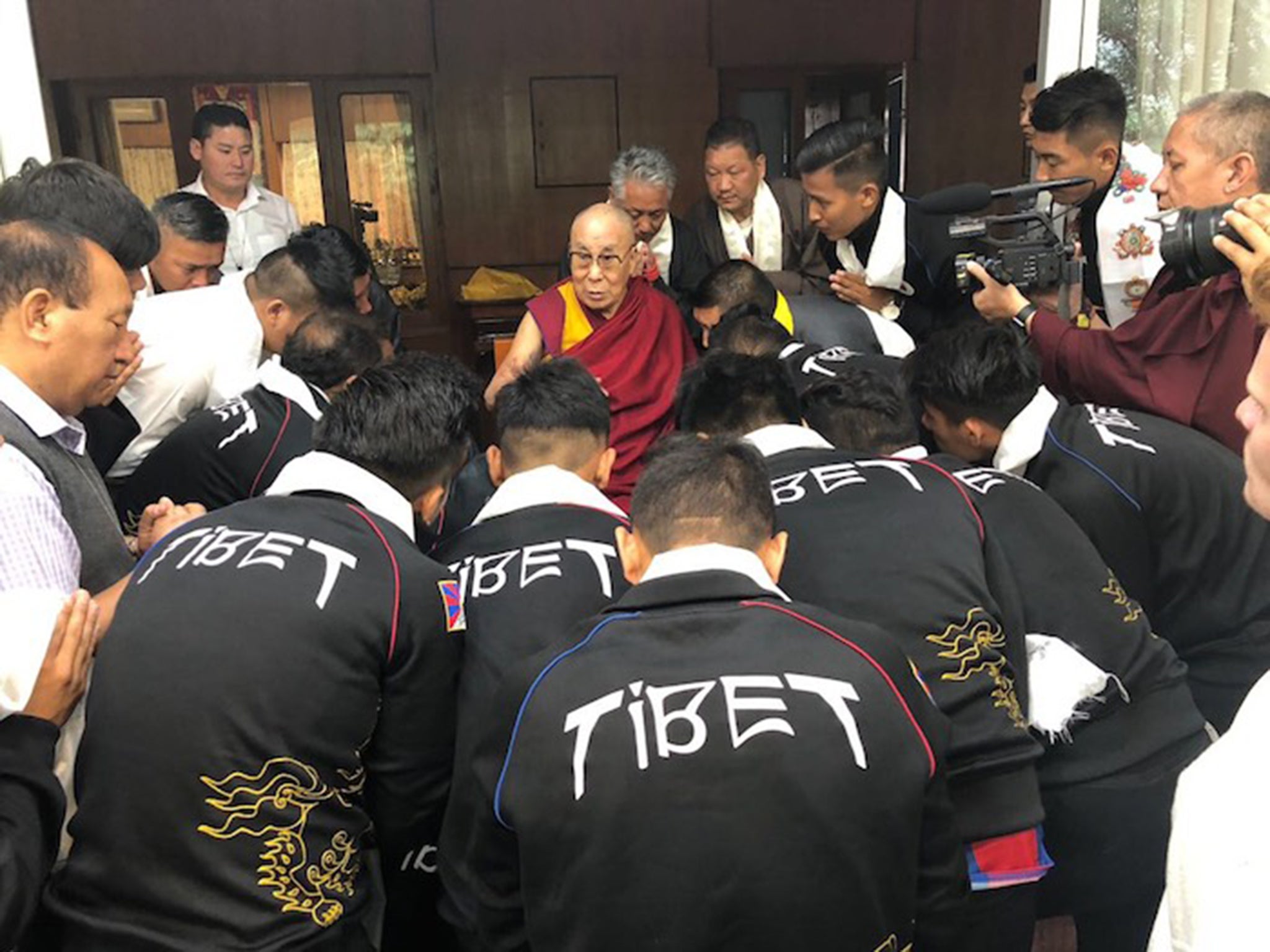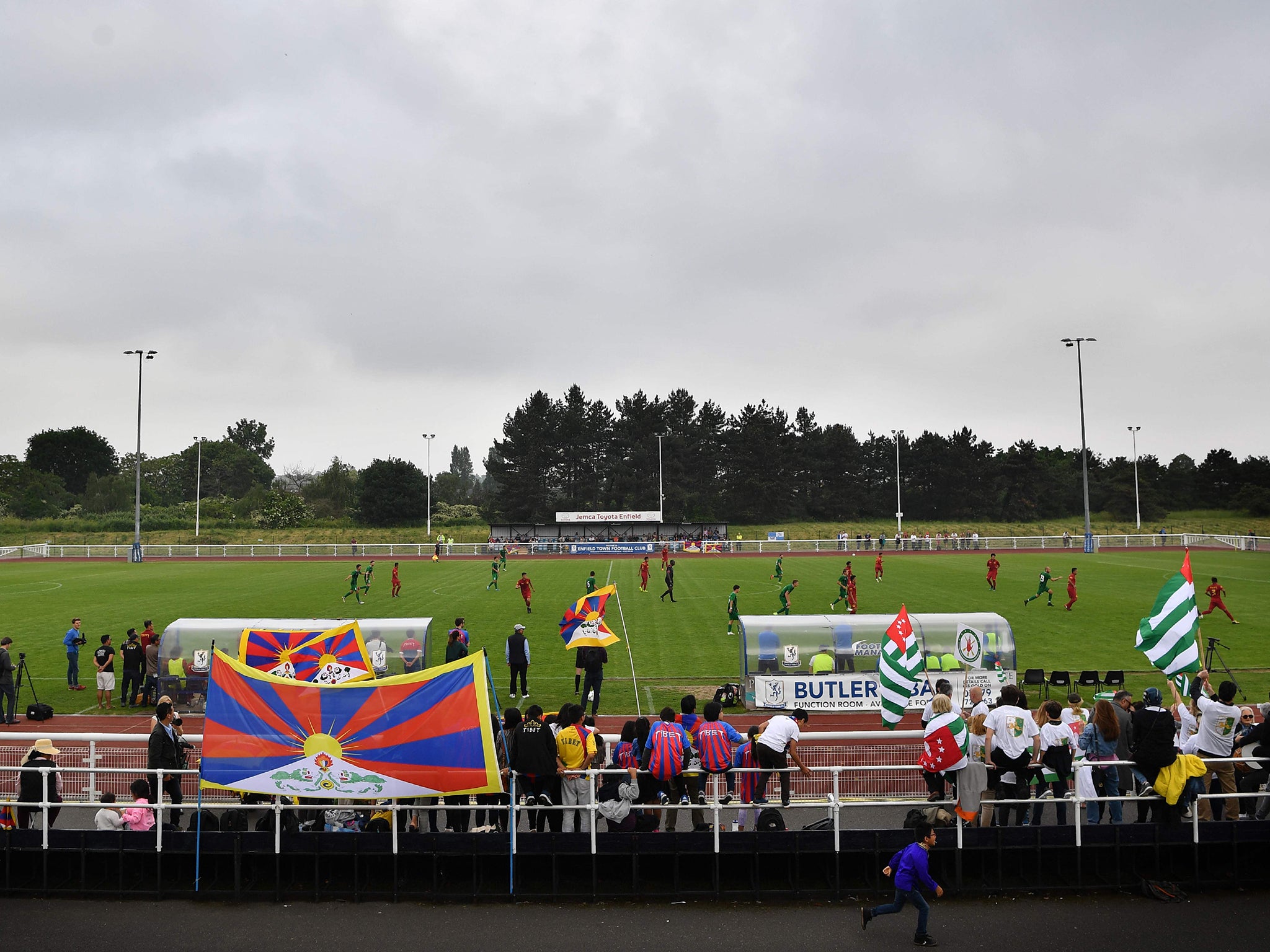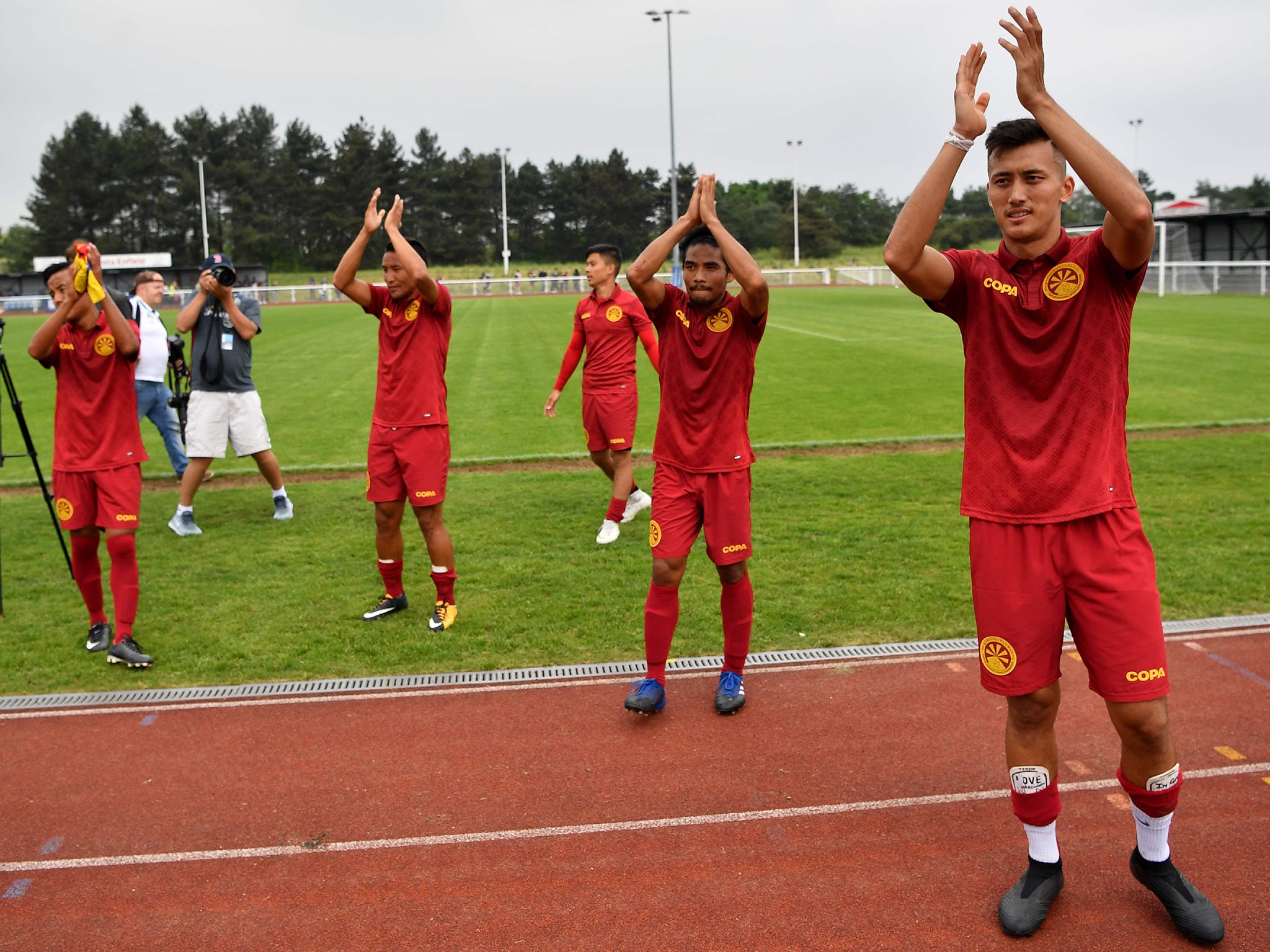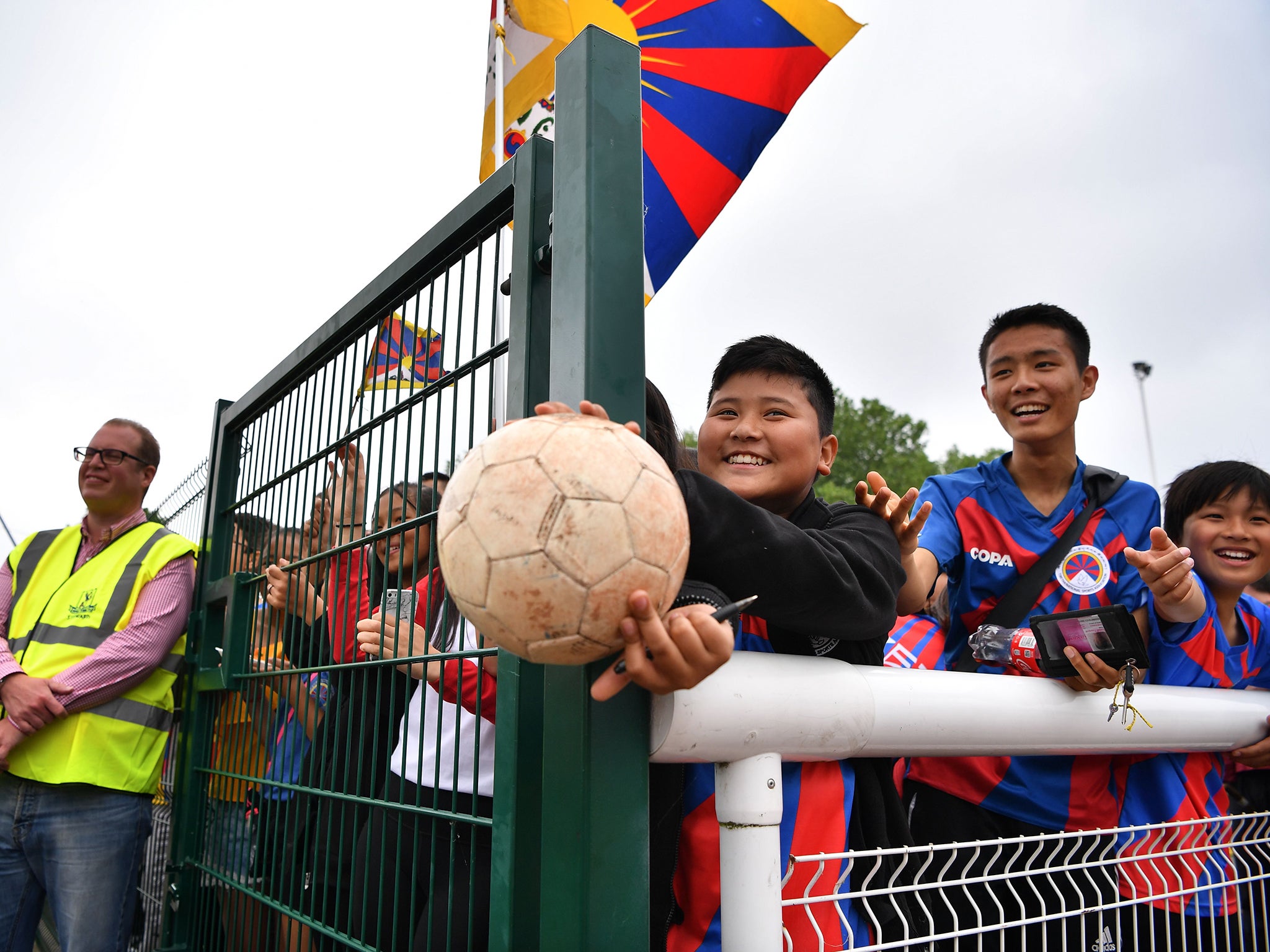Tibet's participation in alternative 'World Cup' ruffles Chinese feathers
Conifa has been running the ‘World Football Cup’ once every two years since 2013, but this year’s tournament is comfortably the biggest. Organisers say Tibet’s involvement has been met with considerable opposition

Your support helps us to tell the story
From reproductive rights to climate change to Big Tech, The Independent is on the ground when the story is developing. Whether it's investigating the financials of Elon Musk's pro-Trump PAC or producing our latest documentary, 'The A Word', which shines a light on the American women fighting for reproductive rights, we know how important it is to parse out the facts from the messaging.
At such a critical moment in US history, we need reporters on the ground. Your donation allows us to keep sending journalists to speak to both sides of the story.
The Independent is trusted by Americans across the entire political spectrum. And unlike many other quality news outlets, we choose not to lock Americans out of our reporting and analysis with paywalls. We believe quality journalism should be available to everyone, paid for by those who can afford it.
Your support makes all the difference.When the Fifa World Cup kicks off less than two weeks from now, the top prize at stake is not really going to be the token £29m handed to the winner, but an unquantifiable sense of national pride.
And although it may feel a million miles away from Russia’s 81,000-capacity Luzhniki Stadium, pride is also the most important factor at the rival World Football Cup which began this weekend across a number of little-known non-league grounds orbiting London.
Sixteen “members” are taking part in the 10-day tournament run by Conifa, the Confederation of Independent Football Associations, offering a platform for oppressed regions and unrecognised breakaway states that, for one reason or another, have been rejected for membership by Fifa itself. The question is, can their pride be classified as “national”?
Conifa has been running the World Football Cup roughly once every two years since 2013, but this year’s tournament is comfortably the biggest.
Thursday’s opening match day also boasted some high-profile names – former Premier League referee Mark Clattenburg officiated the first game, former Major League Soccer star James Riley captained a team from the North American “bioregion” Cascadia and there’s a team representing the Ndebele people of Zimbabwe that is coached by former Liverpool goalkeeper Bruce Grobbelaar.
Yet the real stars of the show, and the ones who have proved most controversial, are a team from Tibet. Dispatched to the earthly confines of Enfield and Sutton with a blessing from the Dalai Lama himself, they have been ordered by His Holiness to conduct themselves with “compassion” and “uphold the honour and dignity of the Tibetan people”.
That won’t mean pulling out of any 50-50 tackles, the team’s manager Passang Dorjee tells The Independent. But it does bring with it a sense of responsibility to provide “an example for the whole world to see” of what Tibet can achieve when it stands on its own.
The Tibet team were handed a wildcard to appear at this year’s competition by the organisers, and face an uphill struggle to get out of Group B. They were beaten 3-0 on Thursday at Enfield Town’s Queen Elizabeth II Stadium by the reigning 2016 champions Abkhazia, a Russia-backed disputed territory in northwestern Georgia. Two more challenges await over the course of the weekend in the form of Northern Cyprus – the Turkish part of the island – and Karpatalya, a Hungarian-speaking enclave of central Europe.
But they are the definition of the plucky and popular underdog, boasting an impressive number of supporters and leading out the opening ceremony procession.

None of them actually live in the Chinese-administered region that they are in London to represent – Dorjee explains that “because of the political situation, there was no hope at all that Tibetans could come out of Tibet to play in this kind of thing”. The Chinese, he says, are “very strict about who goes in and who comes out”, and those who did play would never be allowed to go back home.
Their players come instead from the Tibetan diaspora, most from the mountainous regions of India, Nepal and Bhutan but also some from North America, Europe and two from the UK.
While a good number attended the blessing by the Dalai Lama at his home in India, the first time the full squad met up and trained together was in London, a week before their first match in the cup.
Just having Tibet at the World Football Cup is enough to ruffle feathers, the organisers say. Paul Watson, Conifa’s director, says they had several international brands lined up to provide sponsorship into the six figures until, one by one and, he suggests, at China’s behest, they asked for Tibet to be kicked out. Only Paddy Power, the bookmaker not alien to controversy itself, remained as the main sponsor.
It made financing the competition “really difficult”, Watson told Sky Sports. “People are scared to sponsor an event like this because they’re afraid of offending China.”
But, the team’s manager Dorjee stresses, the Tibetan football team was not calling for the region to have full independence from China, but rather to be granted more autonomy and have its people’s rights observed.
Tibet are not the only participants to come up against opposition. The organisers claim the (Greek) Cypriot government wrote to every council hosting matches – even those where Northern Cyprus were not scheduled to play – telling them they should withdraw from the tournament.

But for the players, even at this most unusual and geopolitically charged event, the sport rises above politics.
Tenzin Nyendak is one of the two British members of the Tibet squad. The 30-year-old centre-half moved to the UK nine years ago from Bylakuppe, a town in southern India with a Tibetan diaspora second only to Dharamsala – where the Dalai Lama lives.
He has never actually played for a league club in London, but as one of the stars of London Tibetan Football Club has travelled across Europe to compete against other teams of Tibetans in exile.
Nyendak tells The Independent it is “a privilege to be part of the national team squad… I am really proud to represent Tibet globally.”
He says that football is the closest thing Tibetans have to a national sport, and he believes the team will be backed “by all Tibetans, in and outside Tibet”. Unable to travel from London, he was disappointed to miss out on the pre-tournament audience with the Dalai Lama – who has said in the past that he enjoys watching football when he can.
Yet in spite of all that, Nyendak would not be drawn on what his manager referred to as the “political situation”. “We take it as a sporting event, we don’t want to involve football with politics,” he says.
“We came here to play. Playing football and winning the tournament are the only objectives we have.”

Tibet’s chances of proceeding to the knockout stages of the cup, let alone winning it, will depend much on their result against Northern Cyprus, again in Enfield, on Saturday evening.
Either way, it won’t matter too much to their manager, Dorjee.
“We are just proud to get this golden opportunity to represent Tibet at Conifa,” he says. “When we hear our national anthem, and we can see our national flags flying in the ground, it makes us realise we have already achieved a lot.
“Winning and losing is not important. The important thing is to say that we are here, we Tibetans can also play football, and to show that we have equality.”
Tibet lost 3-1 to Northern Cyprus in Saturday's match
Join our commenting forum
Join thought-provoking conversations, follow other Independent readers and see their replies
Comments